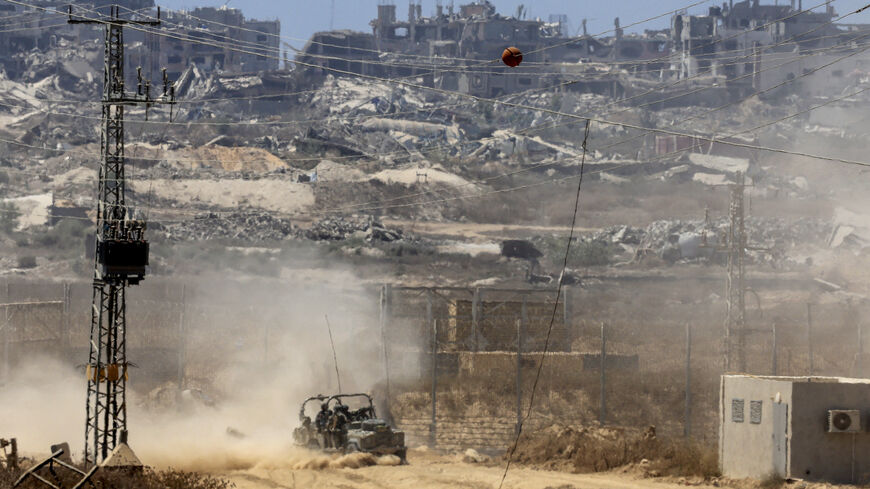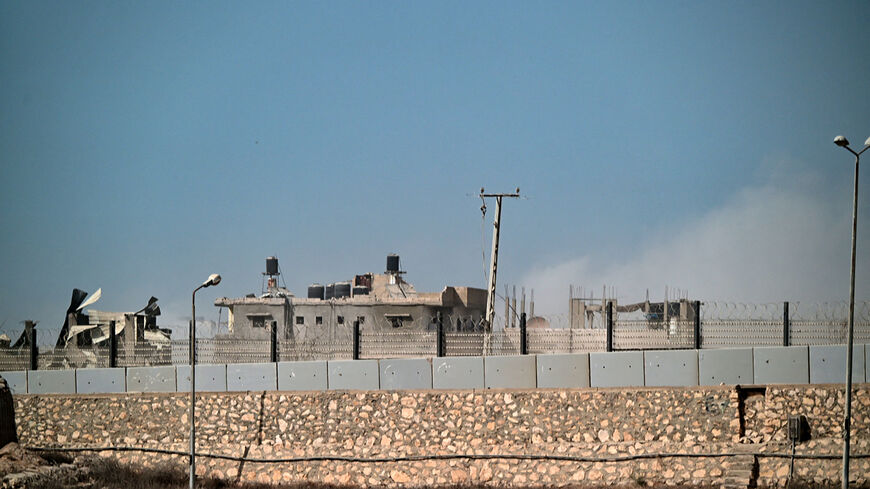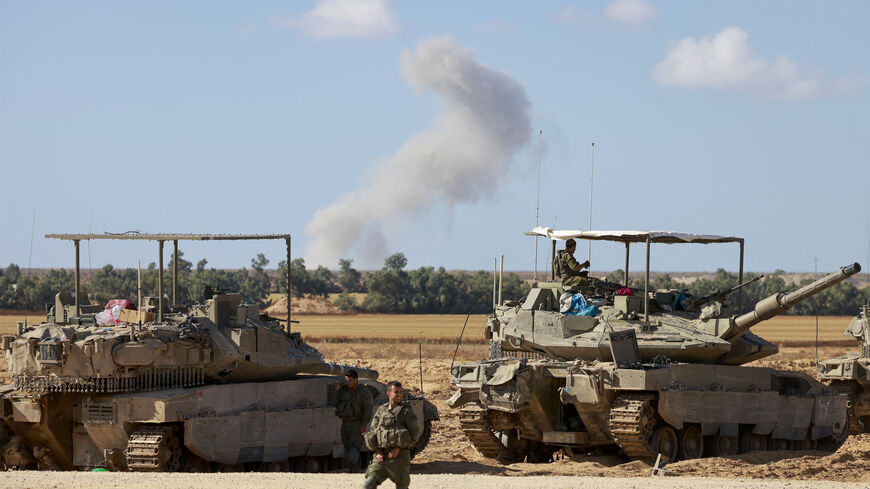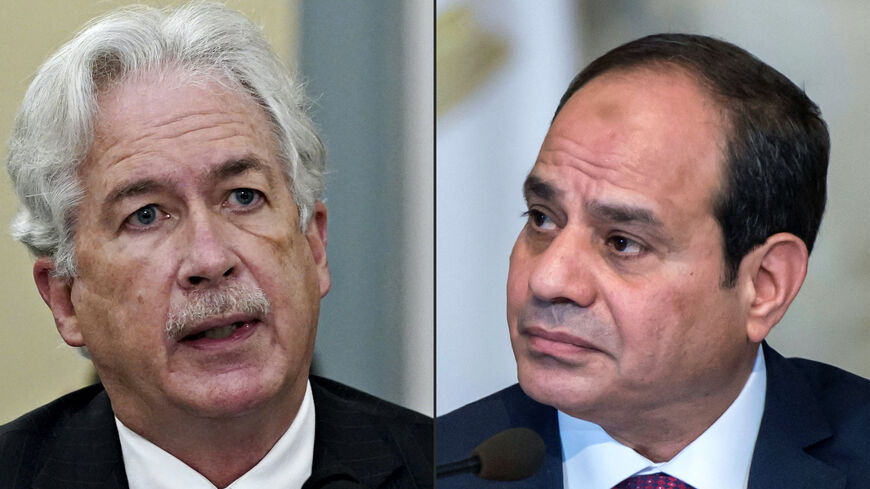CIA chief heads to Cairo for Mossad-Egypt-Qatar talks amid Rafah fears
CIA Director Bill Burns will discuss a new hostage deal with Egyptian and Qatari mediators in Cairo as Israel prepares to invade Rafah despite international and regional warnings.

CIA Director Bill Burns is heading to Cairo this week for further talks on a cease-fire deal in the Gaza Strip that would secure the release of the remaining Israeli hostages held inside the enclave, coinciding with Israel’s imminent ground offensive on Rafah.
US news website Axios, citing US and Israeli officials, said in a Sunday report that Burns will arrive in the Egyptian capital on Tuesday, where he will hold talks with Egyptian intelligence chief Abbas Kamel and Qatari Prime Minister Sheikh Mohammed bin Abdulrahman Al Thani. An Israeli delegation comprising of Mossad chief David Barnea, Shin Bet Director Ronen Bar and Gen. Nitzan Alon, who is leading the Israeli army’s efforts to find the hostages, will also attend the meetings.
Meanwhile, Palestinian Authority President Mahmoud Abbas met in Doha on Monday with Qatar’s Emir Sheikh Tamim bin Hamad Al Thani. According to the official Palestinian WAFA news agency, the two leaders discussed the latest efforts to reach a cease-fire in Gaza.
Cease-fire plans
Last week, Hamas submitted a counterproposal on a cease-fire plan that was hashed out in Paris last month by the United States, Egyptian and Qatari mediators. The plan included a framework for a three-phase deal that included a six-week cease-fire and the release of a number of Palestinian prisoners in exchange for Hamas freeing 35-40 Israeli hostages.
Under Hamas’ proposal, all Palestinian women, children, elderly and sick detainees would be released from Israeli jails, in addition to 1,500 male Palestinian prisoners, 500 of whom Hamas would choose from a list of those serving life or long-term sentences, during three stages lasting 45 days each.
While Israeli Prime Minister Benjamin Netanyahu rejected Hamas’ demands as “delusional,” US Secretary of State Antony Blinken said there was still room for negotiations to reach a final agreement.
“There are clearly nonstarters in what [Hamas] put forward,” Blinken said during a visit to Tel Aviv last week. “But we also see space in what came back to pursue negotiations, to see if we can get to an agreement. That's what we intend to do.”
During a surprise cross-border assault on southern Israel Oct. 7, Hamas militants killed nearly 1,200 people and took over 240 others hostage. During a brief seven-day truce in late November, Hamas released a total of 110 hostages and 240 Palestinian prisoners held in Israeli jails were freed.
Israel believes 136 hostages are still being detained inside Gaza, although dozens have been reported killed during the ongoing Israeli offensive while others are believed to have been killed in Hamas captivity. Hamas' armed-wing, Izz ad-Din Al-Qassam Brigades, claimed on Sunday that two Israeli hostages were killed in the past days in Israeli strikes in the Gaza Strip.
Last week, Israel said 31 of the remaining hostages were dead.
Early on Monday, two hostages were rescued by Israeli troops in Gaza’s southern city of Rafah
Looming Israeli ground operation in Rafah
Burns’ visit to Cairo coincides with Israel’s planned ground offensive in Rafah near the border with Egypt, where nearly 1.5 million people are currently crammed in the governate according to the United Nations.
Around 1.7 million people — or over 75% of Gaza’s total population — have been displaced inside the enclave since Israel launched its air and ground campaign against the Gaza Strip in retaliation to Hamas’ Oct. 7 assault. The relentless bombardment has also killed more than 28,000 people, mostly women and children, and injured nearly 68,000 people, according to the Hamas-run Health Ministry in Gaza.
Although Netanyahu has promised “safe passage” for the hundreds of thousands currently staying in Rafah — with many sheltering in makeshift tents and overcrowded shelters — UN and rights groups have warned of the mass expulsion of the Palestinians.
🇮🇱 Israel just bombed a refugee camp in Rafah… this is the worst war crime in modern history
THIS IS A GENOCIDE…🇵🇸💔 pic.twitter.com/jQzddqvQo4— Pelham (@Resist_05) February 12, 2024
“People have absolutely no idea where else to go,” Philippe Lazzarini, chief of the UN refugee agency UNRWA, said in a post on the X platform on Saturday. “Any large-scale military operation among this population can only lead to an additional layer of endless tragedy that's unfolding in #Gaza.”
Amnesty International Secretary-General Agnes Callamard said, “Palestinians in Gaza are at grave risk of genocide.” In a post on X last week, she called on the international community to prevent this “genocide.”
The Israeli plan has also prompted a wave of international condemnation.
The United Kingdom expressed its deep concern over the possible Israeli offensive in Rafah. “The priority must be an immediate pause in the fighting to get aid in and hostages out, then progress towards a sustainable, permanent ceasefire,” British Foreign Secretary David Cameron wrote on X on Sunday.
Germany also joined the chorus, with its Foreign Minister Annalena Baerbock warning on X on Monday that such an offensive would be “a humanitarian catastrophe in the making. The people in Gaza cannot disappear into thin air.”
EU foreign policy chief Josep Borrell raised concerns that an Israeli offensive on Rafah “would lead to an unspeakable humanitarian catastrophe and grave tensions with Egypt.”
“Resuming negotiations to free hostages and suspend hostilities is the only way to avert a bloodshed,” he wrote in a Monday post on X.
Similarly, Jordan, Qatar, the United Arab Emirates and Saudi Arabia have all expressed their concerns over Israel's plan to invade Rafah, and said in separate statements that such an action would further burden the Palestinian people.
Egypt preparations for possible assault
Egypt has also stressed its rejection of any Israeli offensive in Rafah, warning of the dire consequences in Rafah in light of the already deteriorating humanitarian situation there.
In a statement released on Sunday, the Egyptian Foreign Ministry described the “targeting [of] Rafah, and Israel’s continued adoption of a policy of impeding access of humanitarian aid, as an actual contribution to the implementation of the policy of displacement of the Palestinian people and liquidating their cause.”
The ministry further called on regional and international powers to pressure Israel to prevent an escalation in Rafah and reach an immediate cease-fire in the Gaza Strip.
Since the onset of hostilities in Gaza, Egypt has repeatedly rejected any Israeli attempts at relocating Gaza’s Palestinians in the Sinai Peninsula.
The Wall Street Journal reported on Saturday that Egypt has recently redeployed dozens of M60A3 Patton main battle tanks and YPR-765 infantry fighting vehicles near the Rafah border crossing.
Citing Egyptian officials, the US newspaper said an Egyptian delegation met with Israeli officials in Tel Aviv on Friday to discuss the situation in Rafah. According to the sources, the Israeli officials are trying to reach an agreement with Egypt on some sort of coordination regarding the Rafah ground invasion, which Egypt has refused.
The latest developments come as Cairo has reportedly threatened to suspend its peace treaty with Israel should it go ahead with its ground offensive in Gaza, The Associated Press said on Monday, quoting two Egyptian officials and a Western diplomat.
Egypt was the first Arab country to sign a peace agreement with Israel in 1979. But anti-Israeli sentiment remains rampant in Egyptian society.






